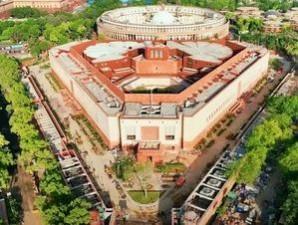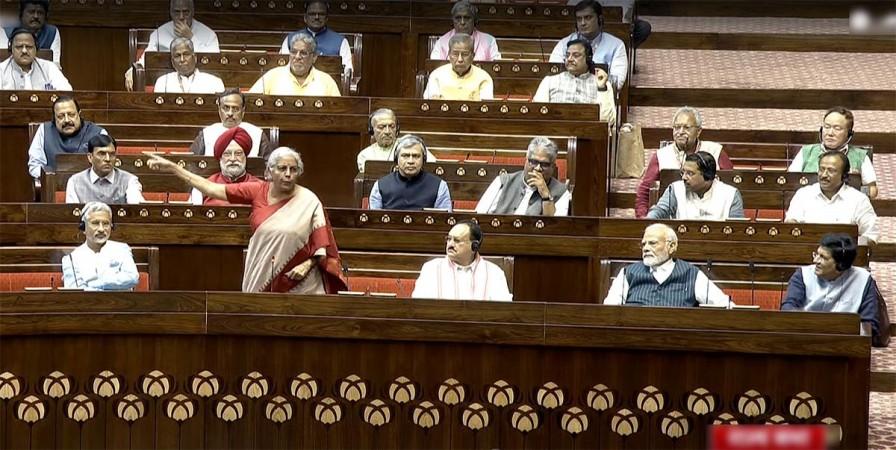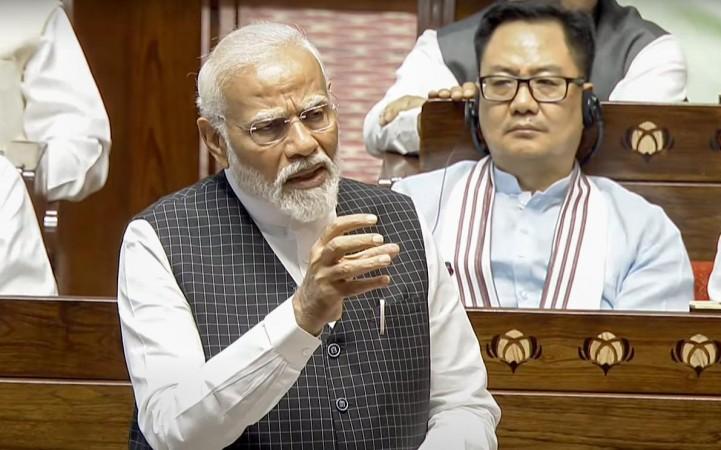
The Monsoon Session of Parliament, a significant event in India's political calendar, commenced on July 22, 2024. This session, under the Narendra Modi-led NDA government that came to power for the third consecutive time, is expected to have 19 sittings till August 12. The session is set to be a platform for the government and the opposition to debate and discuss various issues of national importance.
Prime Minister Narendra Modi, in his opening address, urged all Members of Parliament (MPs) to work together for the betterment of the country, transcending party lines. He emphasized the need for unity and cooperation, stating that the Parliament is a dignified platform for the country and not for any particular party. The Prime Minister also highlighted the importance of the session, which coincides with the beginning of Sawan, a month dedicated to the Hindu deity Shiva. He expressed hope that the session would be conducted in a positive atmosphere and be result-oriented.
The Prime Minister also highlighted India's economic progress, noting that the country is currently the fastest-growing major economy in the world, with a continuous growth rate of 8% over the last three years. He emphasized the positive outlook for investment and economic performance, presenting immense opportunities for the country's development.

Finance Minister Nirmala Sitharaman is set to present the Union Budget, which is expected to lay the foundation for 'Viksit Bharat'. The budget for the financial year of 2024-25 is expected to indicate the new NDA government's macroeconomic and development strategy. The Economic Survey, presented by the Finance Minister, provides a comprehensive summary of the government's economic performance, major development programmes, and policy initiatives. It serves as a guide for policy decisions and economic strategies, offering an impartial assessment of the economy and enhancing transparency and accountability in the government's economic policies.
During the session, key bills are expected to be presented, including the Bharatiya Vayuyan Vidheyak, 2024, aimed at modernizing civil aviation regulations, the Disaster Management (Amendment) Law Bill, the Boilers Bill, and sector-specific development bills for Coffee and Rubber. Additionally, the Budget for the Union Territory of Jammu and Kashmir will also be presented.
The opposition, led by Congress, is ready to challenge the government on issues like public examination irregularities, price rise, and unemployment. The opposition is also set to raise issues such as the NEET paper leak case, the row over Kanwar Yatra directives in Uttar Pradesh and Uttarakhand, and alleged misuse of central probe agencies. They also intend to discuss demands for Special Category Status for certain states and the allocation of funds to Delhi.

The Bharatiya Janata Party secured 240 out of 543 Lok Sabha seats and had to rely on allies to form the government for a third consecutive term. This was a contrast to its performances in the 2014 and 2019 elections, where the party achieved a majority on its own with 272 and 303 MPs, respectively. The Indian National Developmental Inclusive Alliance (INDIA), led by the Congress, meanwhile, secured 234 seats.
The Monsoon Session of Parliament is a crucial platform for the government and the opposition to debate and discuss various issues of national importance. It is a testament to the democratic process in India, where diverse voices and perspectives are heard and considered in the decision-making process. The outcomes of this session will undoubtedly have a significant impact on the country's political and economic landscape. The session is not just a platform for debate, but also a reflection of the democratic ethos and principles that guide the nation. It is a testament to the robustness of India's parliamentary democracy and its ability to adapt and respond to the changing needs and aspirations of its people.














